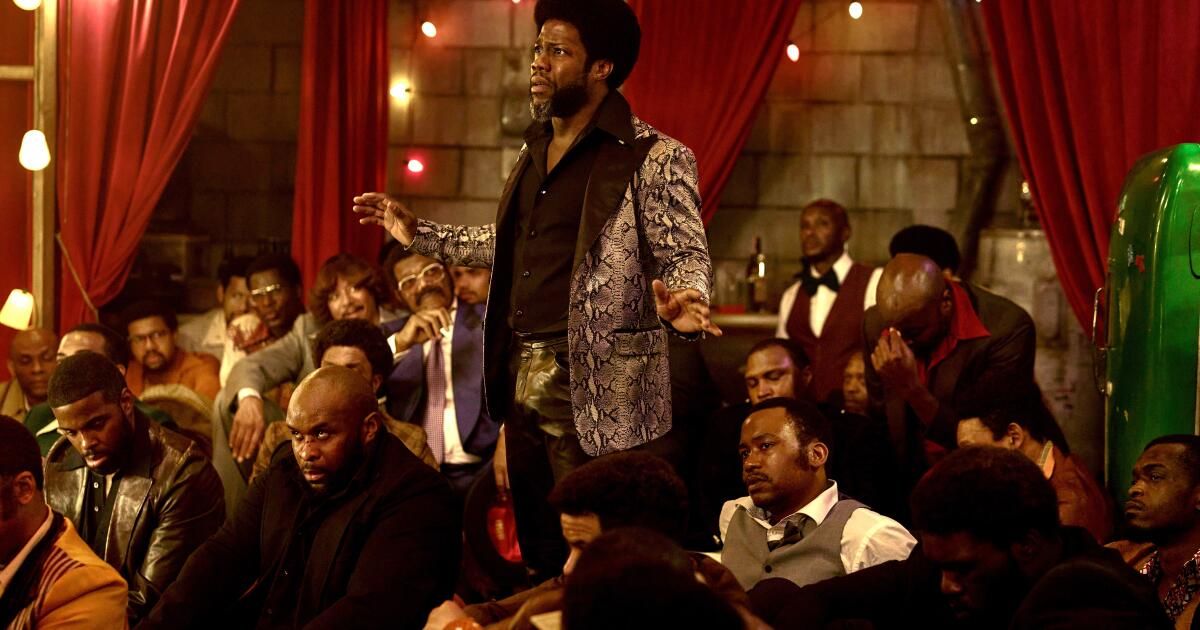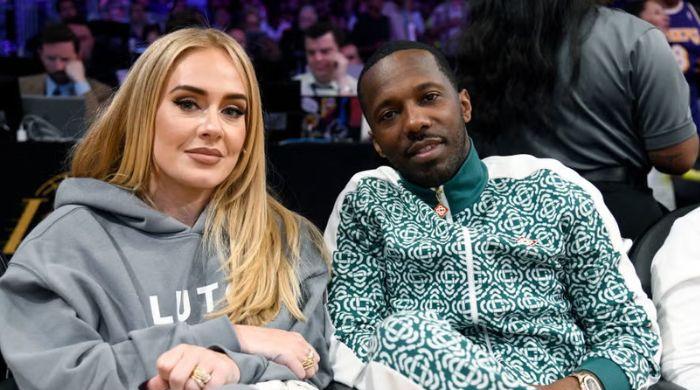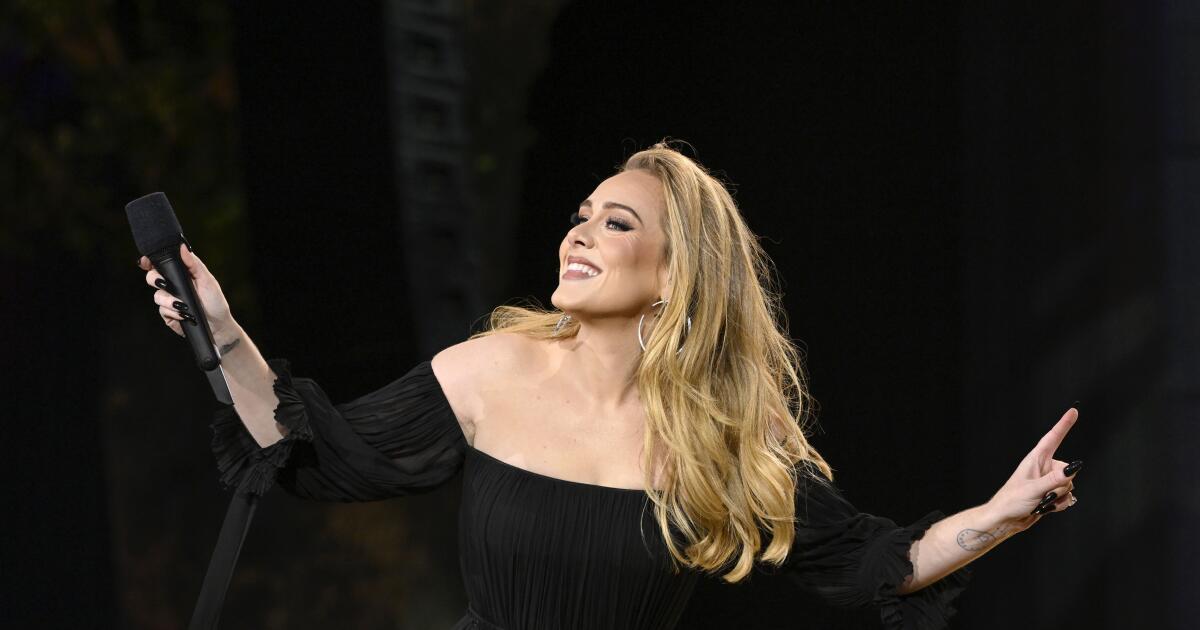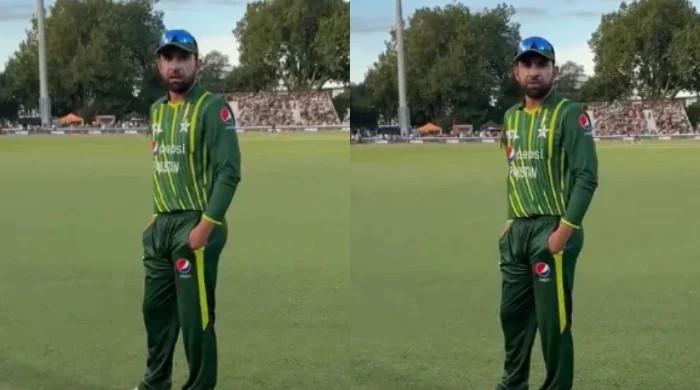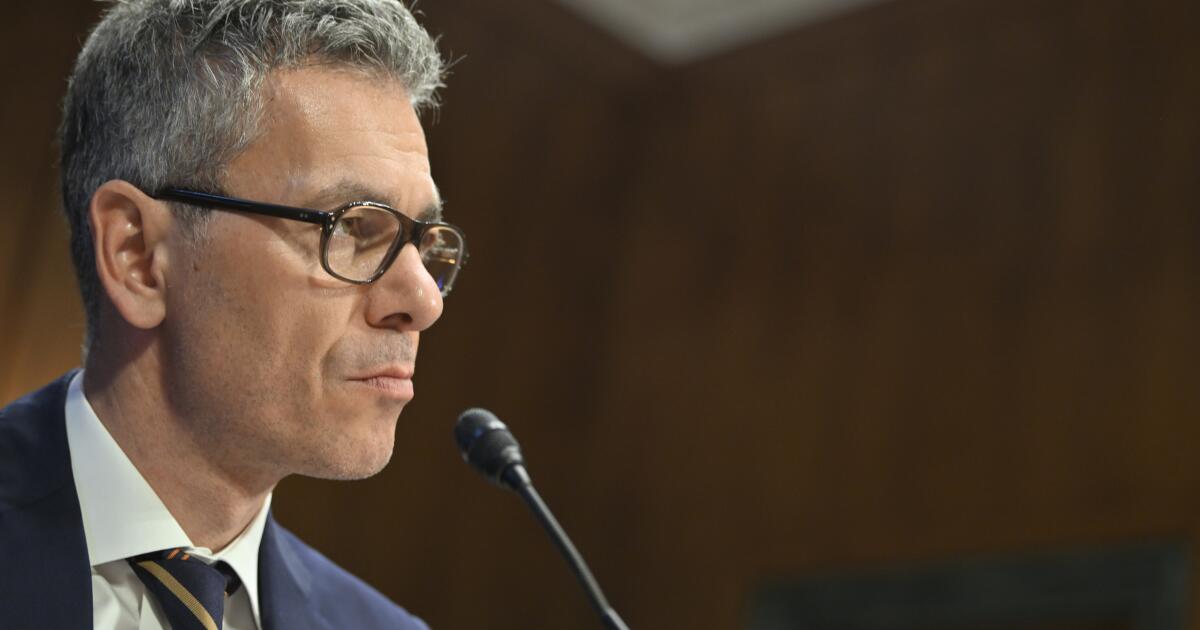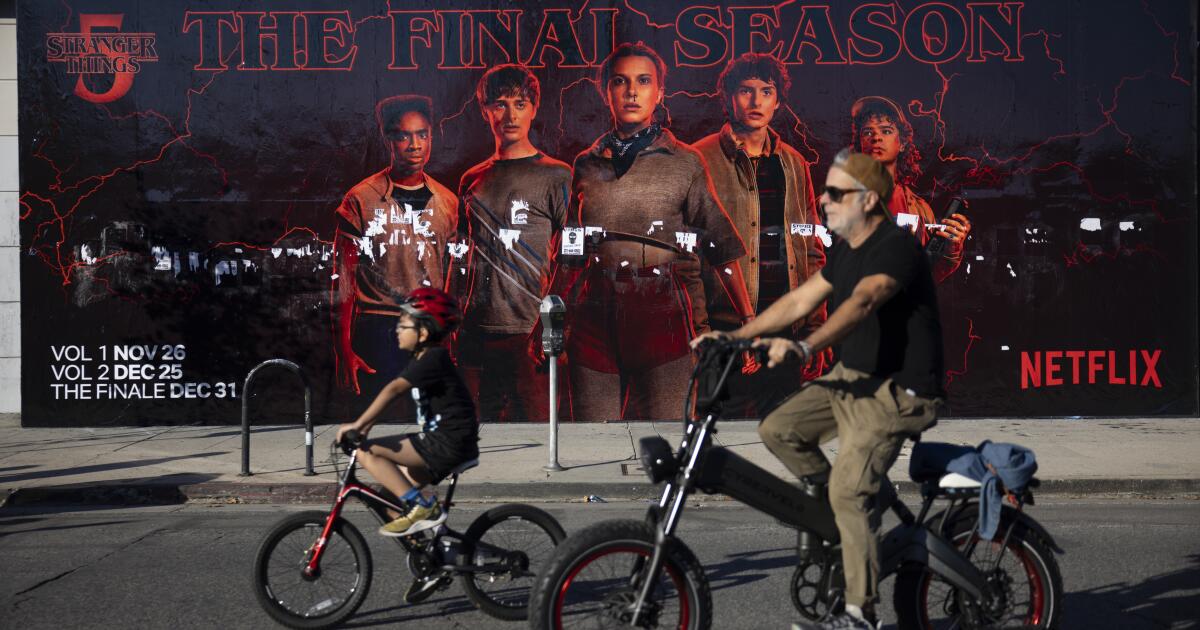Numerous films and documentaries about Muhammad Ali have highlighted his historic 1970 comeback fight, which took place more than three years after he was stripped of his heavyweight title for refusing to be drafted during the Vietnam War.
But “Fight Night: The Million Dollar Heist,” the latest project to revisit that monumental night, focuses on a main event that erupted far from the boxing ring.
The eight-part Peacock miniseries centers on a violent armed robbery just miles from the sold-out brawl at Atlanta’s Municipal Auditorium, when thugs invaded an after-party attended by top mob bosses and made off with more than $1 million in cash and jewelry. The incident, producers say, was instrumental in moving Atlanta away from its Jim Crow past and turning it into a metropolitan destination for black wealth, dubbed the “Black Mecca.”
“Fight Night,” which premieres Thursday, is based on iHeart’s 2020 true-crime podcast of the same name and features an A-list cast that includes Samuel L. Jackson, Taraji P. Henson, Terrence Howard, Don Cheadle and Kevin Hart.
“Fight Night” features an all-star cast. From left to right: Atkins Estimond as Silky Brown, Kevin Hart as Chicken Man, Terrence Howard as Cadillac Richie, Samuel L. Jackson as Frank Moten and Michael James Shaw as Lamar.
(PEACOCK/Parrish Lewis/PEACOCK)
While viewers will likely be drawn to the stellar cast and Hart’s dramatic lead role as fast-talking hustler Gordon “Chicken Man” Williams, the project is distinguished by a distinctive stylistic vibe that captures the flavor of classic 1970s films, injecting it with the unabashed swagger of blaxploitation flicks like “Shaft” and “Superfly.” The old-school R&B soundtrack is packed with classic hits by Billy Paul (“Am I Black Enough For You?”) and the Temptations (“Papa Was a Rolling Stone”), while much of the fast-paced action is shown from multiple angles simultaneously on the same screen.
“I was always fascinated by the aesthetic of those films and the attitude where nothing is subtle and everything is brought to you with music and fashion that drives you,” said Craig Brewer, who directed four episodes, including the premiere. “It’s about people who are desperate to get what they want and what they need.”
Series creator Shaye Ogbonna is the showrunner and wrote some of the episodes. “We have created something that has never been seen before from a narrative standpoint,” he said.
Ogbonna felt an additional commitment to capturing the authenticity and significance of that night and what it meant to Atlanta's black population.
“This is personal for me and Craig,” he said in a Zoom interview. “I’m a son of the city and a product of the community. With the themes and ideas we’re exploring, there’s a responsibility that I take very seriously. This is a high-profile Black project with a lot of resources. It’s important that the story is told correctly and accurately. There aren’t many opportunities like this.”
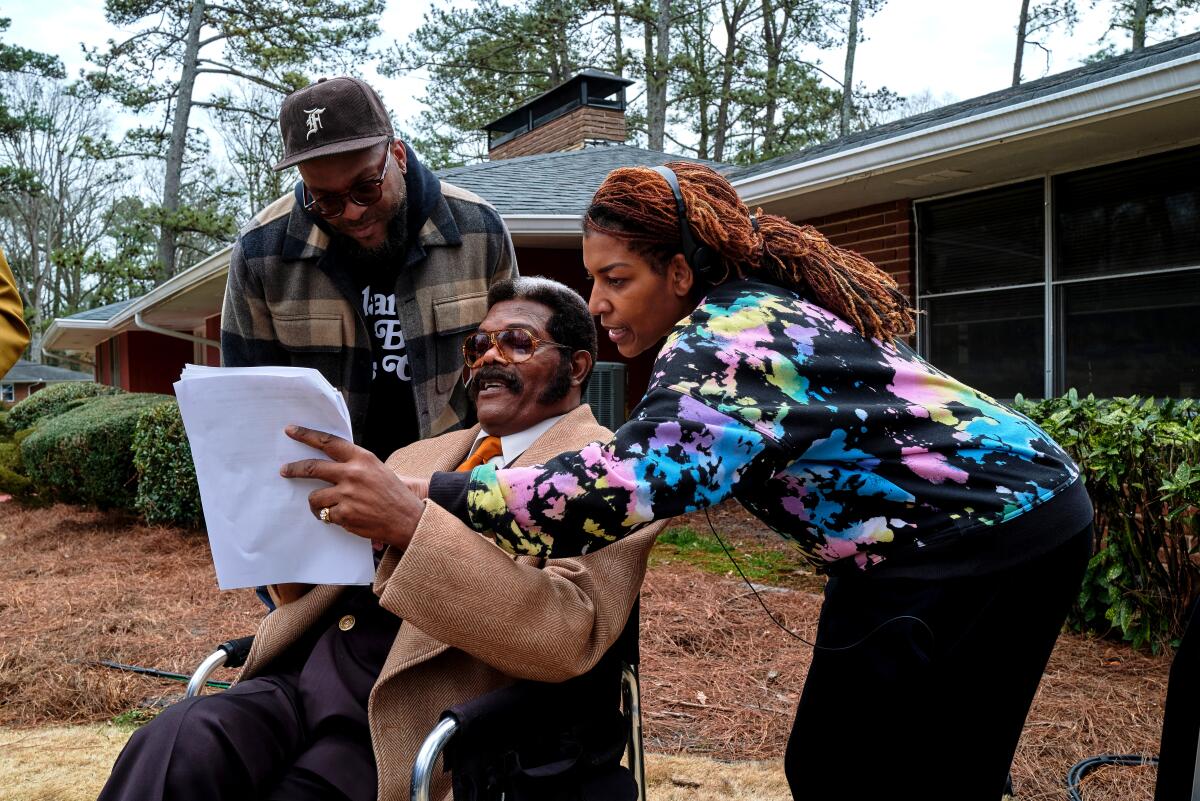
Shaye Ogbonna, left, with Samuel L. Jackson and executive producer Erika L. Johnson on the set of “Fight Night.”
(PEACOCK/Parrish Lewis/PEACOCK)
At the center of the saga is Chicken Man, a desperate dreamer who sees a life-changing opportunity in the hype surrounding Ali's fight with Jerry Quarry. When he learns that New York City mob boss Frank Motin (Jackson) and other prominent gangsters are traveling to Atlanta for the fight, he throws a lavish party that he hopes will make him a great leader.
“At its core, this story is about a city coming to terms with its culture,” Brewer said. “We see that process through the character of Chicken Man, who is up against these gangsters from New York and Chicago who look down on him and how that makes him feel.”
When the party turns into a crime scene, he finds himself up against an old adversary: police detective JD Hudson (Cheadle), who has been tasked with protecting Ali and must now investigate the robbery.
Ogbonna, who has written several episodes of Showtime’s “The Chi,” and Brewer, whose directing credits include the 2005 Memphis-set drama “Hustle & Flow” and Eddie Murphy’s “Dolemite Is My Name,” had never worked together before joining forces on “Fight Night.” But they discovered they had similar interests.
“Our sensibilities are the same,” Ogbonna said. “A lot of the films we were talking about were ’70s films and blaxploitation films. That influenced the heightened cinematic aesthetic we wanted to tell this grounded black story. That’s the style we wanted.”
Brewer was also influenced by the work of Oscar-winning director Norman Jewison, who died in January and whose work often addressed social and political themes.
“I started looking into his movies. In the last issue of ‘Jesus Christ Superstar,’ there’s a moment that’s very ’70s, with the afros and the fashion,” Brewer said. “I noticed the lighting had these wonderful filters. I thought it would be a great look for the Ali fight.”
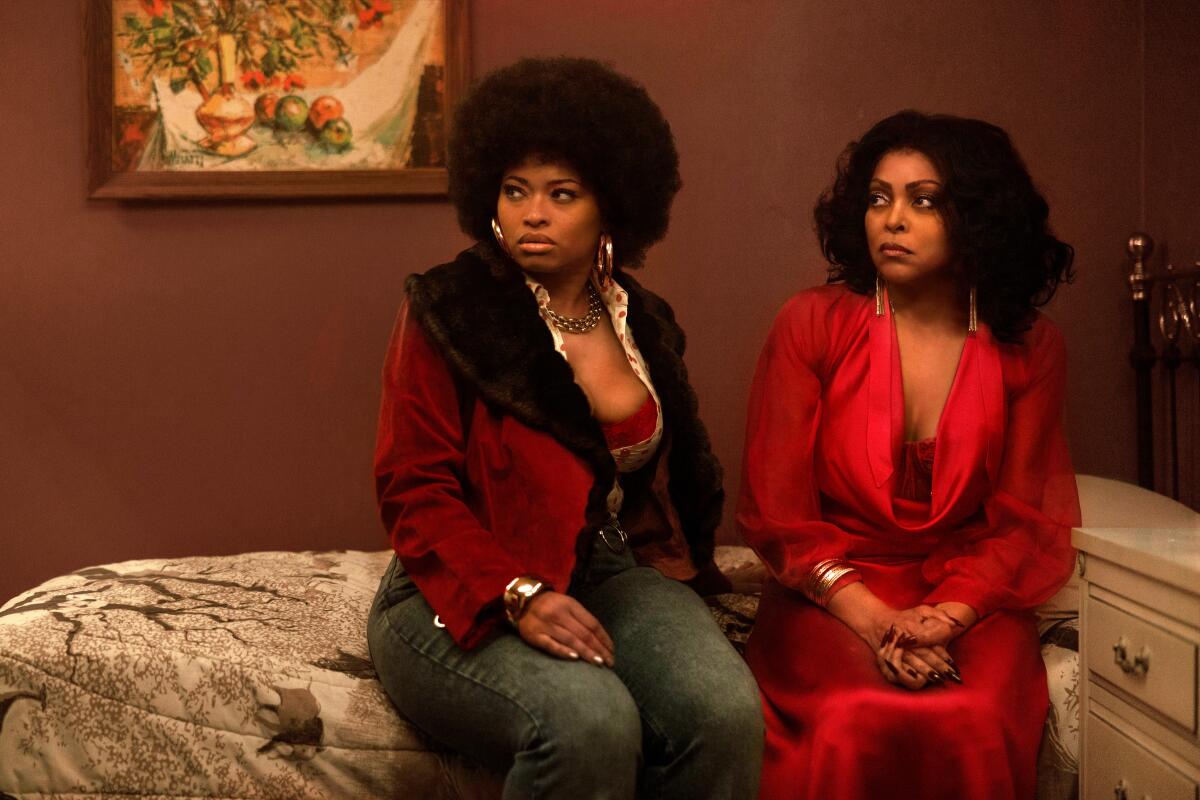
The series has a distinctive 1970s style, both in costumes and filming. Teresa Celeste as Maxine, left, and Taraji P. Henson as Vivian, Chicken Man's girlfriend.
(PEACOCK/Fernando Decillis/PEACOCK)
Another source of inspiration was Jewison's 1968 heist film “The Thomas Crown Affair,” one of the first major films to use the split-screen technique.
“It’s told in all these panels on the same screen,” Brewer said. “That’s been done by Quentin Tarantino and others who want to go in the ’70s direction as a gimmick, but I found it had a wonderful narrative function. You could reference something and see it at the same time from different angles.”
Also instrumental in accurately portraying that era was Jackson, who was living in Atlanta at the time of the fight.
“Sam has a connection to Atlanta,” Ogbonna said. “Having him around was like having a historian on set. He got married in the church that was right around the corner from where the Chicken Man party was held.”
Ogbonna said he is very proud of the final product and hopes that audiences will have fun. He is also hopeful that the main purpose behind “Fight Night” is clear.
“I want you to know something about Atlanta, the southern metropolis of the United States that we know today,” he said. “It all started with these people, ordinary people who made choices, some good, some bad. It’s about aspirations. We know our history. The South had something to say and we shouted it loud.”

